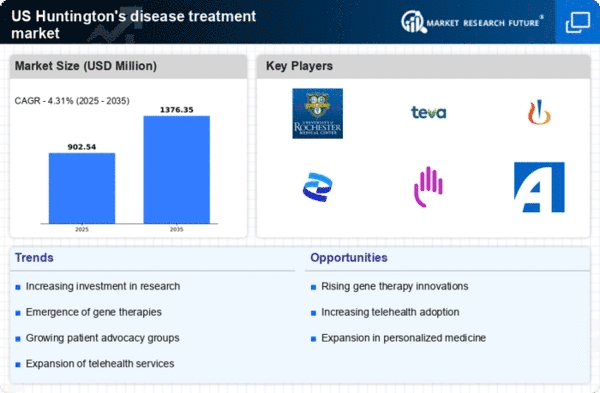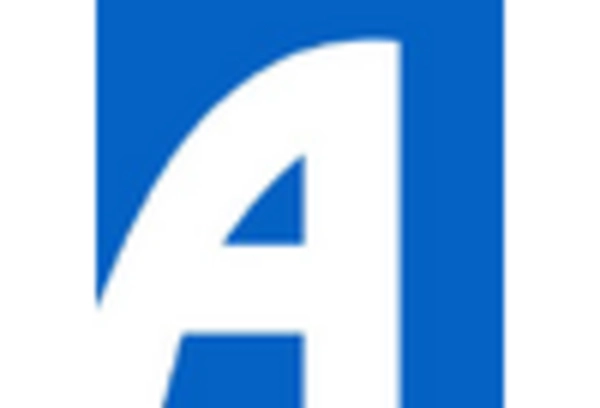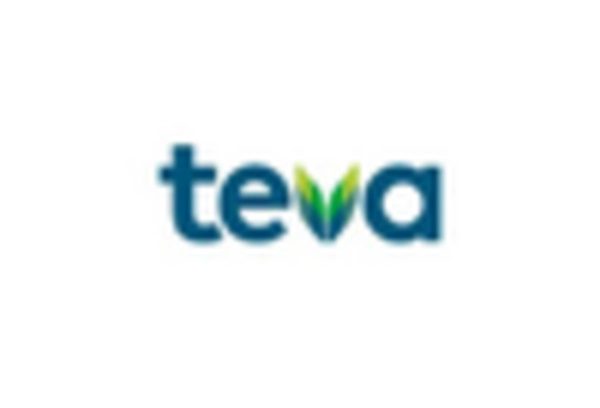Increased Awareness and Advocacy
The heightened awareness and advocacy surrounding Huntington's disease play a significant role in shaping the huntington s-disease-treatment market. Non-profit organizations and patient advocacy groups are actively working to educate the public and healthcare professionals about the disease, its symptoms, and available treatment options. This increased visibility is likely to lead to earlier diagnosis and intervention, which can improve patient outcomes. Moreover, advocacy efforts are driving legislative changes that support funding for research and access to care. For instance, initiatives aimed at increasing insurance coverage for genetic testing and treatment options are gaining traction. As awareness continues to grow, the demand for effective therapies in the huntington s-disease-treatment market is expected to rise, prompting pharmaceutical companies to invest in developing new solutions.
Emergence of Personalized Medicine
The emergence of personalized medicine is transforming the landscape of the huntington s-disease-treatment market. Tailoring treatment approaches to individual patients based on their genetic profiles and disease characteristics is becoming increasingly feasible. Advances in genomic technologies enable healthcare providers to identify specific mutations and biomarkers associated with Huntington's disease, allowing for more targeted therapies. This shift towards personalized treatment is likely to enhance the efficacy of interventions and minimize adverse effects. Additionally, the integration of pharmacogenomics into clinical practice may lead to improved patient adherence and satisfaction. As personalized medicine continues to gain traction, the huntington s-disease-treatment market is expected to evolve, with a growing emphasis on individualized care strategies that address the unique needs of each patient.
Advancements in Research and Development
Ongoing advancements in research and development are pivotal for the huntington s-disease-treatment market. The scientific community is increasingly focused on understanding the underlying mechanisms of Huntington's disease, which has led to the exploration of novel therapeutic approaches. For instance, recent studies have highlighted the potential of gene silencing techniques and small molecule drugs that target specific pathways involved in the disease's progression. The US government has allocated substantial funding for research initiatives aimed at Huntington's disease, with the National Institutes of Health (NIH) investing over $50 million annually in related projects. This financial support fosters innovation and encourages collaboration among academic institutions, pharmaceutical companies, and biotech firms. As a result, the huntington s-disease-treatment market is likely to benefit from a pipeline of new therapies that could transform patient care and improve outcomes.
Rising Prevalence of Huntington's Disease
The increasing prevalence of Huntington's disease in the US is a critical driver for the huntington s-disease-treatment market. As the population ages, the incidence of neurodegenerative disorders, including Huntington's, is expected to rise. Current estimates suggest that approximately 30,000 individuals in the US are affected by this condition, with an additional 200,000 at risk of inheriting the gene. This growing patient population necessitates the development and availability of effective treatment options, thereby propelling market growth. Furthermore, the awareness surrounding genetic testing and early diagnosis is likely to enhance the identification of at-risk individuals, which could lead to an increased demand for therapeutic interventions. Consequently, the rising prevalence of Huntington's disease is poised to significantly impact the huntington s-disease-treatment market, driving innovation and investment in new therapies.
Regulatory Support for Innovative Therapies
Regulatory support for innovative therapies is a crucial driver for the huntington s-disease-treatment market. The US Food and Drug Administration (FDA) has implemented various initiatives to expedite the approval process for breakthrough therapies, particularly those addressing unmet medical needs. Programs such as Fast Track designation and Breakthrough Therapy designation are designed to facilitate the development and review of promising treatments for conditions like Huntington's disease. This regulatory environment encourages pharmaceutical companies to invest in research and development, knowing that their innovative solutions may receive expedited approval. As a result, the huntington s-disease-treatment market is likely to witness an influx of new therapies that could significantly improve patient outcomes and quality of life.

















Leave a Comment